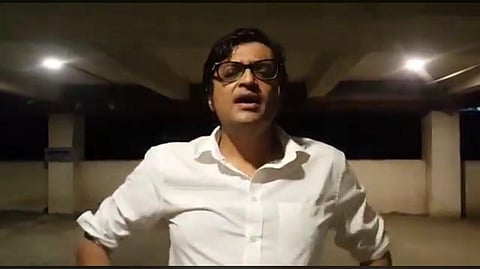

The media is the message. Today’s scourge of information is masala news teeming with spittle spray anchors, neurotic newsmen, rabid ragefests and body spasms that will put The Exorcist to shame. India’s media universe has changed—news television has descended from journalism into pulverising propaganda that pushes political views and bullies contrary opinion.
Until 2000, journalism was respected by people and feared by crooks. Scoops brought down scamsters. Political skullduggery was exposed. Somewhere along the way, it lost respect. The reason is media mismanagement and odious ownership patterns more dubious than NCB's proof against Rhea Chakraborty. Politicians and businessmen, who noted the impact of TV, realised that owning a news channel gave them power.
Until then, the majority of channels were run by professional news organisations with credibility. That changed when national journalists were caught fixing cabinet posts and articles. Meanwhile, regional TV in the heartland was booming.
It's a public secret that in many national vernacular channels, caste is a crucial factor in hiring; no Dalit or woman, unless she is an owner, heads a single Hindi channel. Channels upped their TRPs with salacious gossip and stories about cows being kidnapped by UFOs. This value system percolated both down and laterally.
Some English news channels, which realised the power of regional TV's savage style of reporting unverified news, applied the blueprint to great impact. Soon nobody was carrying news anymore, only cockfights as panel discussions. Breaking news was "Deepika Padukone got into her car!"
Local power-brokers and political dons understood the value of having a channel. Netas and crooks in small towns launched channels to intimidate and blackmail legislators and business rivals. Journalists were no longer gathering facts, but digging up dirt on their master’s enemies.
They did ‘sting operations’ on behalf of bahubalis. Now, most politicians or parties across the country either own or back TV news channels by proxy. Profit is not money, but influence. The journalist turned into a hired gun of politicians and lost legitimacy.
Viewers saw through the game. TV newsmen became unctuously untrustworthy underlings who are perceived contemptuously by the public as enteric entertainers with the morals of psychotic sycophant. Anchors don’t lose a second’s sleep over holding a media trial to send an innocent girl to jail.
When the court proved them wrong, the screen brawlers didn’t walk back even a word. One convulsive anchor flung mud at a violated Dalit girl from Hathras by promoting the nefarious narrative of an insensitive state. Any respect-worthy media channel would have questioned how a forensic report collected from the girl 11 days after the incident is expected to show signs of semen. None did.
Now justice seems to be catching up with lawsuits and investigations. Pessimists tossing back glassfuls of rum in Press Clubs lament the death of print. They need not worry. Print is the last bastion of news journalism, based on investigations, meticulous research, analysis and good prose. Once the spoken scream falls silent, the written word will endure as it always has. Opinion will lose its gratuitousness and regain gravitas. The pen is mightier than the remote control.
The author can be contacted at ravi@newindianexpress.com